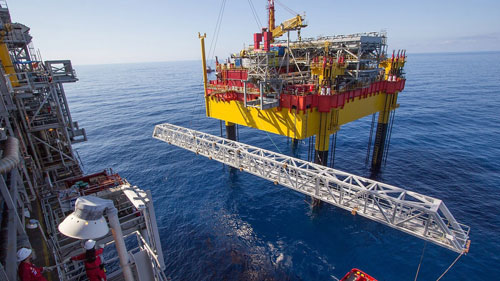The Department of Energy (DOE) said two of its recent activities are expected to help in tempering prices of fuel in the country in the future.
The DOE said in a briefing yesterday the conduct of $72 million (P4.24 billion) worth of oil drilling activities offshore Palawan will be pursued by Nido Petroleum Philippines Pty. Ltd. under two service contracts (SC).
Alessandro Sales, DOE undersecretary, said from the amount, $56 million (P3.3 billion) will be for the drilling of wells and extended production tests for SC6B Cadlao and another $16 million (P942.79 million) for the drilling of wells in SC 54.
However, Sales said the DOE so far can only provide the timeline for Nido Petroleum’s plans for SC6B Cadlao, based on the company’s submitted plans, as it intends to drill wells by first half of next year that will be followed by an extended production testing that can run up to a maximum of six months.
Afterwards, Sales said, if the extended production testing will be successful by the end of next year, the company can start installing permanent production facilities by the first half of 2024 and continue adding permanent production equipment onwards.
“In terms of volume we are looking at, it’s really small volume in Cadlao which is about 5 to 6 million barrels that is being targeted to be redeveloped. In terms of daily production, this could come out to a high of 15,000 barrels to a low of 5,000 barrels and these fields will normally decline in time. In terms of actual impact in fluid consumption, the Philippines consumes about 320,000 barrels per day of fuel,” Sales said.
According to the DOE, despite the small volume the potential resource can provide for the country’s fuel needs, the project will be significant in terms of “signals we are sending out to foreign investors.”
Sales said Nido Petroleum’s next step in SC6B Cadlao is a site survey prior to drilling of wells to make sure that the seabed where the drilling rig will be positioned is going to be safe.
The DOE said the planned Cadlao drilling has secured the necessary health and safety permits as well as environmental permits from both the Department of Environment and Natural Resources and the Palawan Council for Sustainable Developments.
Energy Secretary Raphael Lotilla also assured that Nido Petroleum’s planned drilling is safe from possible territorial disputes as both SC6B and SC 54 are closer to the main island of Palawan and are “more indisputably in Philippine waters and territories.”
“We are in constant touch with our security agencies but we have to assure that these activities are taking place in areas that are indisputably within Philippine jurisdiction. In case of Cadlao, drilling activities there began in 1990s and in the case of SC 54, exploration activities also took place there in 2008,” Lotilla said.
“Undersecretary (Giovanni Carlo) Bacordo is the one primarily responsible for liaising with our security officers as a former official of the Philippine Navy. He is in constant touch with Department of National Defense and the National Security Council,” Lotilla added.
Meanwhile, the DOE said it hascoordinated with the Bureau of Customs (BOC) for the latter to use transactional value instead of reference value in computing the taxes due coal imports which can help in lowering power rates from P0.10 to P0.30 per kilowatt hour.
“The problem with coal importation was about the valuation of coal as the higher you value coal, the higher their taxes and duties that they have to pay so the effect will be higher prices of electricity. Together with the BOC, they have really assessed and we have checked the implementation of the Customs Modernization Law, instead of having reference value as law says, it should be the transactional value,” Sharon Garin, DOE undersecretary, said.
Garin added that by using reference value instead of transactional value in computing taxes for coal imports, the effect is an average of additional $5.7 per metric ton.
“It’s not that we are favoring the importers, it is just a mere clarification of the law… Just to avoid future controversy, we made clear it should be transactional value and not reference value which is higher than the transactional value,” Garin said.




